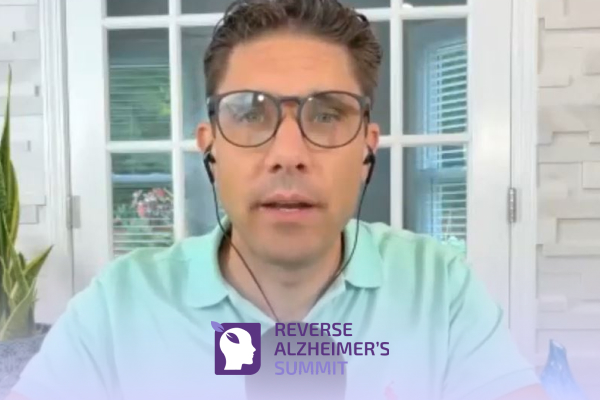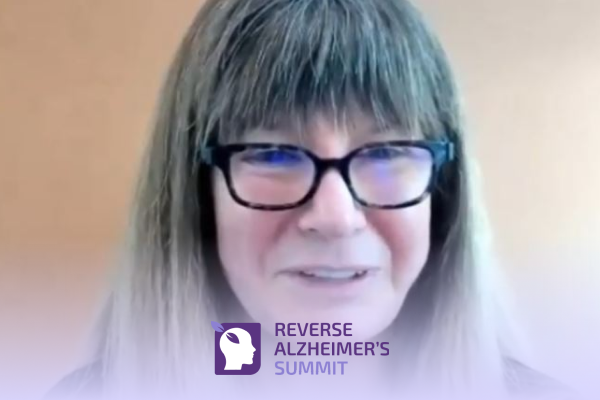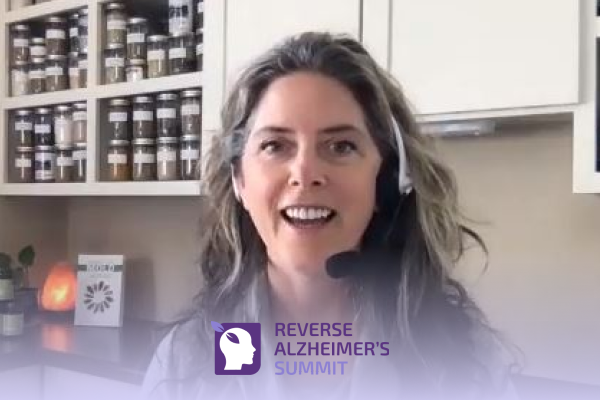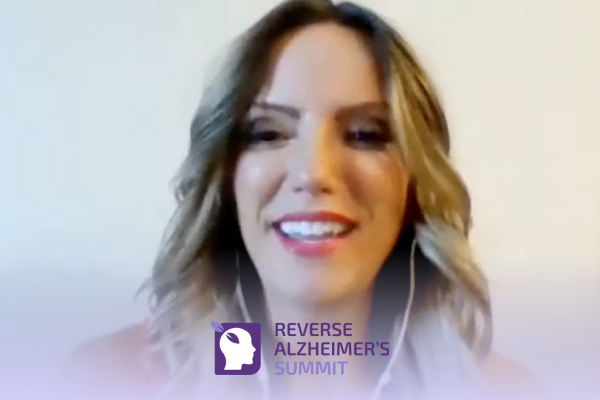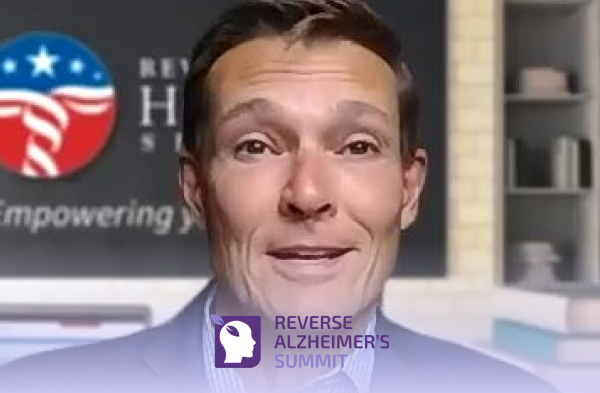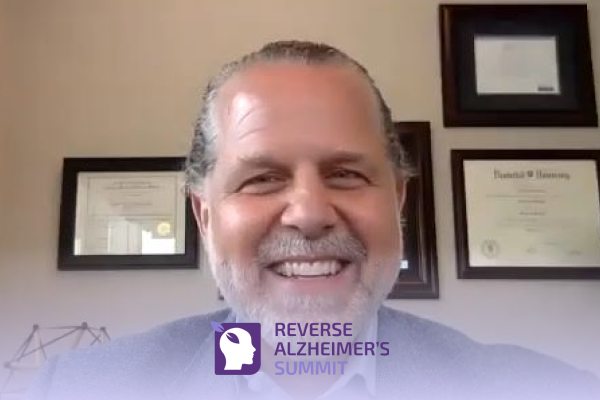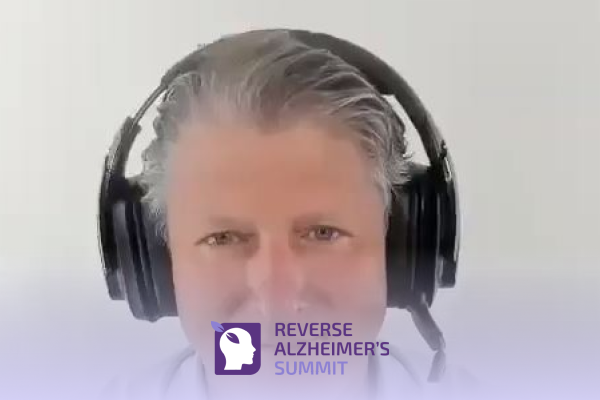Join the discussion below
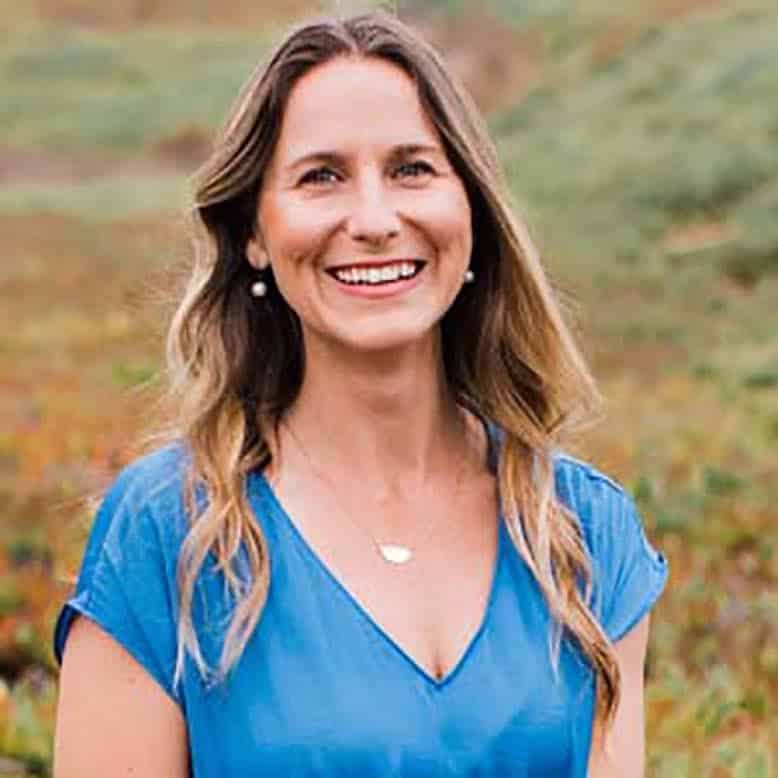
Dr. Heather Sandison is the founder of Solcere Health Clinic and Marama, the first residential care facility for the elderly of its kind. At Solcere, Dr. Sandison and her team of doctors and health coaches focus primarily on supporting patients looking to optimize cognitive function, prevent mental decline, and reverse... Read More
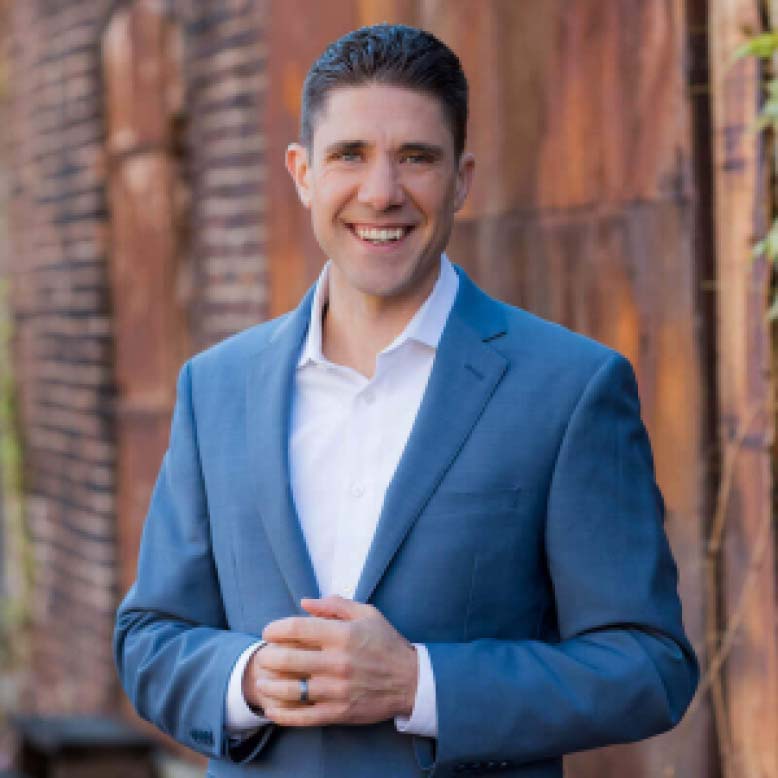
DR. ERIC ZIELINSKI is the author of the national bestseller The Healing Power of Essential Oils and The Essential Oils Diet Dr. Z has pioneered natural living and biblical health education since 2003. Trained as an aromatherapist, public health researcher, and chiropractor, Dr. Z started NaturalLivingFamily.com in 2014 with his... Read More
Learn more about the relationship between essenitial oils and brain health.
Related Topics
Acetylcholinesterase Inhibition, Alzheimers, Basil, Bergamot, Beta Amyloid Plaques, Bitter Orange, Brain, Brain Health, Chemical Constituency, Cinnamaldehyde, Cinnamon Bark, Cognitive Function, Dementia, Dementia Prevention, Efficacy, Essential Oils, Holistic Perspective, Key Lime, Lavender, Lemon Balm, Lemon Myrtle, Lifestyle, Medications, Memory, Microbes, Natural Regenerative Process, Neurological Disorders, Neurotransmitters, Nootropics, Plant-based Matter, Root Cause, Rosemary, Safe And Effective Approach, Sage, Side Effects, Synapses, Thyme, Zero Side EffectsHeather Sandison, N.D.
Welcome back to the Reverse Alzheimer’s Summit. I’m your host, Dr. Heather Sandison, and I’m so pleased to have Dr. Eric Z here today. He’s the author of the national bestseller, “The Healing Power of Essential Oils,” and he started naturallivingfamily.com. Most of you know him, and I’m so thrilled to have him here to talk about the connections between essential oils and what you can do with them to help with Alzheimer’s and dementia. Dr. Z, welcome.
Eric Zielinski D.C.
Hey, thank you for having me. I am really, really excited, one because you’re awesome, and your podcast just is fantastic. You’re a wonderful interviewer, love your energy, love this topic. On the heels of this FDA-drug-scandal controversy with Alzheimer’s drugs, I didn’t realize that this was gonna be such a point and topic for people, and my new book comes out, I have a whole chapter on Alzheimer’s and dementia. I’m really excited cause I have some cutting-edge stuff that no one’s ever heard about before and I don’t know why, because it’s in the literature, no one just pulls it out. So, this is gonna be groundbreaking for a lotta people, and I really appreciate the opportunity to share the things that I’ve learned.
Heather Sandison, N.D.
Well, I’m so excited for people to take away really actual things today. So let’s just dive right in. I was really elated essentially to see that, and surprised that you had Alzheimer’s and dementia discussed in your new book. So what are some of the ways that essential oils can be used to really help with these, obviously very dramatic, awful, torturous conditions?
Eric Zielinski D.C.
So, if you all don’t mind a little bit, I’m gonna cheat slightly. I’m gonna quote a couple of really, really important quotes from my book. And this is special, this is special because this is pre-release and no one’s ever seen and heard this stuff before. So, the answer to that question, I wanna relate back to a recent literature review that was published. And I couldn’t make this stuff up.
Again, I’m gonna point out there, we’re not making wild claims, I’m not saying things that aren’t scientific, but according to the researchers, scientists, essential oils are quote, “Effective against almost all currently known pathological targets of Alzheimer’s disease. Essential oils also possess neuroprotective, anti-aging potentials and are effective in dementia, epilepsy, anxiety, and other neurological disorders.” And according to these researchers, they suggest special focus must be given on the edible ingestion essential oils, which are part of the diet, or is used as spices, and basically food enhancement. These researchers go on to talk about how essentially essential oils should be considered nootropics.
Nootropics are smart drugs, cognitive enhancers, like we think of drugs, supplements, other substances to help your memory function, your creativity, your executive function, your motivation. They’re proposing that we look at essential oils to be an actual pharmaceutical approach to Alzheimer’s. And the reason why is the way that essential oils interact with the body is similarly or very similar, similar in effect, but they have the same mechanism that the primary approach the pharmacy has for Alzheimer’s, which is acetylcholinesterase inhibition. Have you talked a little bit about that? ‘Cause I don’t wanna repeat what other experts have shared, but have you covered acetylcholinesterase inhibitors in that aspect?
Heather Sandison, N.D.
We’ve certainly talked a little bit about those medications, this is like Aricept or donepezil, these common medications that are used and that don’t help all that much. And certainly one of the conversations that we’ve had with Kat Toups, Dale Bredesen, some of the other experts that we’ve had on is how much of an impact do beta amyloid plaques really play and how much of an impact does acetylcholine even play? What are all of the components? And so, when I think of my training around essential oils, back in my naturopathic training, there were so many exciting things that we could do to help with the microbes that might be contributing, to help with neuro-transmitters and how they’re contributing.
You know, all of these different facets of the progression of this destructive disease, that’s why I’m so excited to be talking to the expert in this, that we can really address a lot of those in a very comprehensive way with a safe and very effective approach that is the essential oils. So, we haven’t specifically talked about this, so dive in.
Eric Zielinski D.C.
Okay, so the theory, and this is the approach, because again, there’s no known medical cure for Alzheimer’s and they’re just trying to slow the progression. So the long and the short of it is, the executive summary version, is people with dementia and Alzheimer’s they have reportedly low levels of acetylcholine, which is a neurotransmitter in the brain, which is required for proper cognitive function. Now, the natural cycle of life, the cycle of things breaking down and rebuilding, like when you’re looking at your skin, your skin regenerates itself every 28 days. Women know this more than anyone, you’re on a monthly cycle, but we’re all on a monthly cycle, men included.
So there’s an enzyme in the body that gets naturally emitted called acetylcholinesterase. Again, anything with an ase at the end of a word is an enzyme, and that breaks down the root word. So acetylcholinesterase is the enzyme that breaks down acetylcholine. And so, what the theory and the approach is, in medicine, is to have a drug that stops the activity of acetylcholinesterase so that there’s more acetylcholine in the brain, which makes sense theoretically. It’s like, if you’re trying to have more acetylcholine in the brain being just out there, to help with function, help with just synapses, to help with your memory, your ability to think, your ability just to process things at a neurological level, then stopping the breakdown, because again, people with dementia and Alzheimer’s reportedly have a problem producing naturally. And so, by stopping the enzyme, you’re theoretically increasing the levels of acetylcholine. because again, they’re not breaking it down. But the the problem is you’re still not fixing the root cause of why acetylcholine isn’t being produced at the level that it should be, and it’s also hijacking a very natural regenerative process.
Like we need to break things down to rebuild it. We need to break things down to rebuild it, every aspect of your life. Every aspect of your body is that way. Your heart regenerates itself, what, every six to eight months, and we don’t see what’s happening at the microscopic level. The danger is when you hijack something so important in your brain, like stopping this enzyme from breaking down this neurotransmitter, the side effects are unbelievable. I mean, including vomiting, hallucinations, dizziness, nausea, like even death, known side effects. But here’s the thing. Essential oils because of the chemical constituency in them have acetylcholinesterase inhibition properties. And cinnamon bark was evaluated. The chemical in cinnamon bark, cinnamaldehyde was evaluated and it had an 80% efficacy to slow down acetylcholinesterase, which is interesting. I mean, we’re talking 80% efficacy. Imagine if your drug had an 80% efficacy to it.
I mean, just think about the world health crisis we’re in right now, 80% effectiveness. That’s the potential of cinnamon bark essential oil. So these researchers are saying, hey, hey, hey. Let’s look at this. Because here’s the thing, if used properly essential oils have zero side effects, beside the rare case of someone getting allergic to them or having an adverse reaction because of some sort of drug interaction, zero side effects. You’re not going to have a side effect if you eat a piece of fruit or eat herbs or have a salad, there’s gonna be no side effects to them, unless you obviously have a food intolerance or an allergy. And what we’re talking about is the same chemical structure that give your plants such good life-giving properties to your body. You can extract that and then you can create, you know, get a bottle. I mean, let’s maybe put this into context.
You’re looking at roughly like five pounds of lavender flowers in this thing. It’s hard to conceptualize when you get a lavender petal, or a blossom and you pick it up, it’s lighter than air. Five pounds steamed, distilled, this is concentrated, plant-based matter that no one in the history of the planet have been able to really truly enjoy, but our generation, maybe since the ’60s and ’70s, since people started really mass producing this and selling it, this is unheard of. And so I’m gonna give you a list again, this is straight from my book. This is the Alzheimer’s dementia chapter from the upcoming book, “The Essential Oils Apothecary.” No reported side effects. Again, that’s really important, really important. These other essential oils, in addition to cinnamon bark have acetylcholinesterase activity that can help slow that down.
Basil, bergamot, key lime, lavender, lemon balm, which is also known Melissa, lemon myrtle, bitter orange, rosemary, sage, and thyme. And so, what I’m proposing we do is that we look at this through a holistic perspective. And the other information that you’re getting from the experts in this summit is life-saving, life-changing for people if it’s applied. And what I try to tell people who, I just did an interview, I just did a live Q & A just a few minutes ago to an integrative cancer group. And everyone’s always looking for that silver bullet. What’s that one thing for this? What’s that one thing for this? It doesn’t exist. What exists is this Alzheimer’s-free type of lifestyle.
This dementia prevention lifestyle that we start with now. Bear with me here. The reason why I cover advanced strategies and protocols for chronic disease in my new book is because they’re also interrelated. A completely healthy 65-year-old with zero biomarkers for any sort of chronic condition does not, it’s impossible for that person to wake up tomorrow with Alzheimer’s because, because these chronic conditions by definition are rooted in childhood. They’re rooted in years and years and years of micro toxicity, micro stress, years and years of breakdown, whether it’s cancer or heart disease or diabetes, you just don’t wake up tomorrow with it. You might wake up tomorrow with a diagnosis. That’s a big difference. But it doesn’t happen overnight. It’s chronic. It takes years and it’s also because of that, it can take some time to slow it down or time to reverse it. So when I share and I’m gonna give some capsule recipes.
I’ll give you one straight from my book in just a minute. How to use it through typical inhalation and topical application stuff. Whether it’s a supplement or whether it’s, whatever protocol it is, whether it’s an essential oil, if you don’t change your lifestyle as a whole and adapt a lot of these concepts and beautiful things that these wonderful experts are sharing. it’s like taking one step forward, but two or three steps back. We gotta get outta this mindset, we gotta get outta the standard American diet mindset, this fast food lifestyle. It’s killing us. And part of it is the unbelievable burden that we have emotionally, rest, anxiety, burnout, overwhelm, it’s like we’re living through the Dark Ages emotionally right now. Outside, inside, like, look, I’m living in a palace, right?
Anyone, 500 years ago, if I were to bring them into my home, they think I would be a king. I live in a subdivision in Atlanta. This is a palace. Like we don’t realize emotionally, emotionally the stress, the trauma that we’re going through is a huge component to everything that we’re talking about and how we manage it. And especially because of the health crisis that we’ve all lived through this last year and a half, two years. Whenever you listen to this, if you listen in a replay a couple of years from now, I’m sure the waves of the Coronavirus are gonna hit you. I don’t know where you’re at 2025 or 2026 or 2030.
So all this comes into play, in significant, all right. And so I wanna talk about synthetic fragrances and that danger to neurological inflammation, sanitation, there’s some key things we gotta cover from my book. I wanna give you a recipe, and this is straight from my book. I call it my cholinesterase-inhibiting capsule. It’s a capsule recipe that you take one drop of lemon balm, one drop of sage, one drop of thyme, one drop of oregano essential oils. You put them all in a gel capsule.
Fill that gel capsule up, coconut oil, extra virgin olive oil. If you’re a fan of CBD, CBD in my opinion can’t hurt, it can only help in this situation. And you ingest that. Like that would be a medicinal approach to using essential oils for Alzheimer’s and dementia. And this brings a lot of different variables involved. Like you do this under the guidance of a health care professional, especially if you’re taking other medications. Because there are known drug interactions with your supplements, with your essential oils. You wanna make sure because there’s chemical soup happening in your body. There’s a lot of things happening, especially when people are on pharmaceuticals. So if you are ingesting essential oils, always, always, always be sure. And here’s the thing though, I’m gonna, I guess be blunt, most doctors and pharmacists have no idea about interactions when it comes to supplements and essential oils. Why? They’re not taught it in school.
Heather Sandison, N.D.
What about, when I hear that formula I think of bug killing. Like that’s gonna kill off yeast in the gut, that might kill off some other bugs, and someone might feel temporarily, maybe worse for a minute, a few days, as the yeast comes out, especially if they’ve had a high-sugar diet for awhile. Do you see that happening? Or with this formula is that not as much of an issue?
Eric Zielinski D.C.
That’s a really good point. Two things on that. One is these essential oils, specifically these actually, oregano is a potent antibiotic. As strong as many antibiotics on the market. Same thing with thyme. Thyme’s been shown to kill MRSA. You know, very, very few drugs on the planet can even touch MRSA, antibiotic-resistant bacteria. Sage as well. Lemon balm, Melissa also has been shown to help with glioblastoma, like brain cancer, right? So I just wanna give you some little side notes. These essential oils are rich, rich in healing components.
You have to consider when you take anything that you can be ruffling up some old dust that might be settled, so to speak, you know, figuratively, and you might get certain things that happen. I haven’t heard specifically, candida, sugar. I’m not personally as concerned with that as I am with okay, where are we at with symptoms related to what we’re dealing with.
But you make a good point though and this is the point, you have to be observant. You have to observe your body. Like, I don’t need glasses. I don’t need glasses right now. I wear these because I need blue-blocking support. And I’ve been really affected lately. And a number of reasons why. I have a new studio set up in my office. I have these super bright lights. I’ve been spending so much time on the screen. I started getting like low-grade headaches and like what in the world? My eyes started watering. And I’m like, you know what? Even though I have the app on my phone, you know the NightWatch thing, even though I have f.lux on my Mac and I got this blue screen or the orange tint, I’m still being affected.
And so my body was saying, I need support. And you know, I’m growing like all of y’all and I’ve been very sensitive to that. So I get these blue-blocking glasses, no jokes like overnight, like, boom, it’s great. I share that with you because we have to be sensitive to our body. So to your point, if you take, this is really important. And the reason I got the blue-blocking glasses was because after I got these new high-powered lights, I’m like, whoa, I can’t do it. It’s like I felt it like immediately.
Like I can’t spend two, three hours doing interviews, like I do a lot, two or three times, four times a week, and not have some kind of support. Cause and effect. So if you take this capsule, right, under the guidance of your healthcare professional, making sure hopefully that you guys are at least guiding biomarkers and making sure symptoms. And by the way, I do have a drug interaction chart in the book. Every known drug interaction based off a metabolic pathway, which will blow your mind, blow your naturopath’s mind if he or she is interested, ’cause nothing like this exists on the planet.
If you’re taking a drug, we’ll let you know if there’s any known interaction through any sort of metabolic pathway, and which oils to be careful of. So, cause and effect. If you take this remedy that I’m suggesting consider trying, and then tomorrow you start to get some kind of skin outbreak and you start to maybe have a manifestation of, I see body odor, I see halitosis, I see skin itching and rashes as a outbreak of candida, cause and effect. Meaning, it wasn’t the essential oil that caused the outbreak, it’s like maybe you’re now stirring up some candida sugar issues, I mean, I don’t know. But that’s a really good point though.
Heather Sandison, N.D.
When I hear that formula, like Melissa is so good for viruses as well, Melissa officinalis, or lemon balm. And sage, thyme, oregano, these are so good for microbes. And we know cause and effect, that P gingivalis, some of the bacteria that can grow in our gums and in our mouth if we’re not careful, directly can cause dementia. We know that herpes can directly be in those neurofibrillary tangles and those beta amyloid plaques are definitely associated with dementia, as is Borrelia and some of the Lyme co infections. So when I hear that your approach, yes, the acetylcholinesterase inhibition, but also we’re probably getting at some of the microbes that directly can be causal in terms of creating a brain that basically is at risk of dementia. So there might be even more magic to these amazing essential oils than just that one pathway. This is really exciting.
Eric Zielinski D.C.
Yeah, and this is where topical application and cleaning comes into play. And I wanna quote a little section from my book that I titled Get a Little Dirty Once in a While. And this was pretty controversial by the way. My publisher and I, bless their heart, because they covered a lotta stuff that no other publisher would. You know, we talk about cancer in this book, we talk about fatty liver and heart disease. I mean, we covered in depth, chronic conditions. And in this part of the book, my publisher was like, “Are you sure? You’re going against the CDC guidance here on sanitation?” I’m like, “Well, we have to question. We have to think, we have to look.” Research from the Oxford Journal, and this is straight from my book. This is Oxford by the way. I can’t stress the importance of an institutional, like institutionalized system like Oxford.
This isn’t some podunk, off the wall, no offense to me in chiropractor and naturopath school. This is Oxford University, right. Research from the Oxford Journal, evolution medicine public health has found a strong link between over-sanitized, wealthier countries and a higher rate of Alzheimer’s. Conducted across 192 countries, essentially the whole world. This is the key. This study suggests that the lack of bacteria creates a poorly, on your hands, skin. I’m talking the skin microbiome. That’s my specialty. Creates a poorly developed immune system, which puts your brain at risk for inflammation. So what was I saying? Think twice before using hand sanitizer. In fact, for 99.9% of the times that you use hand sanitizer, you don’t need it. And the only time, admittedly, I ever use any kind of hand sanitizer, which by the way is homemade.
It’s simple, simple alcohol and essential oils. Period, done. The only time I ever use it is if I’m on a road trip and I have to change a dirty diaper and I got nowhere to wash my hands. That’s literally like the only time. Or I’m stuck in my car and my hands are dirty and I just want a quick spray. That’s it. And I had to get free from the addiction of having my hands clean all the time, hands sanitized. It was an obsession everywhere I’d go. Every door knob I touched. Every time I’d go into my car, spray, spray, spray, Purell. I’m mean, it’s part of my kids’ school supply list, paper, pencils, note pad, hand sanitizer. Like since when did that become core for your learning.
That’s an obsession. You go, it’s everywhere. It’s everywhere. It’s causing superbugs on your skin. It’s causing, it’s a contributing factor to antibiotic-resistant bacteria. It’s a contributing factor to the fungi and viruses and bacteria developing resistance against our body’s ability to kill it. So we don’t use sanitizer like ever. And we clean with good old soap and water. I mean, it’s so easy if you want a quick little recipe, it’s so easy to go get a foaming hand soap thingy on Amazon, you know, an empty, put some water and Castile soap with a couple of drops of aloe and some essential oils, done. Like that’s foaming hand soap. It smells like heaven, depending on what oils you use, smells like heaven. It’s completely clean. You mentioned the antiviral, antifungal, antibacterial approach. All of these oils are antimicrobial. You clean your stuff. And the cool thing is that you don’t have to, this is the other part of the equation of ingesting, you don’t have to worry about ruining your microbiome. There’s something known as cell selectivity. And the researchers have shown, and this is, I don’t know how else other than explain it and to me I have an easy job because as a Christian, my answer is always, it’s just the wisdom of God, it’s how God designed it.
That’s my catch all answer and I’m not ashamed to say it. There’s no reason, there’s no scientific explanation for this fact. The fact is this, essential oils have what’s known as cell selectivity. So when you ingest them and when you apply them on your skin, of course diluted properly, always with gel capsules, all that stuff, the essential oils will leave the healthy bacteria alone and kill the bad bacteria. It’s fascinating because you don’t see that with your hand sanitizers, your antibiotics, your antibacterial products, you don’t see that with your antifungals. And that’s where these drugs are killing everything, the good and the bad. And so when you’re using essential oils and your herbs and your spices and your supplements, you don’t have to worry about developing resistance, there is no known resistance to this stuff, whether from your body or whether for microbes.
Fascinating, fascinating stuff. But when you go to back to sanitation, the message that I have for people, the message is strong, is you have to very much be careful, very much be careful about going overboard. And that goes completely against all the guidance now. All the guidance from major world health type of organizations, including the WHO, sanitize everything times two, and then hand sanitize your hands all the time. If we continue this path, I mean, this is data, if we continue this path, we are gonna see skyrocketing, astounding amounts of Alzheimer’s in the next generation.
If kids right now, their whole life from birth to, you know, cradle to grave of hand sanitizer and these antibacterial products are gonna continue, at this rate be be part of our life, the brain cannot stop and slow down that inflammation. You have to stop the bleeding first before you put on a band-aid. And that’s where essential oils aren’t gonna help you heal the brain until you stop the bleeding. And that’s number one. Nothing, nothing you’re learning here is going to stop the bleeding until you stop it. And that includes cleaning with the right products, using the right body care, and staying away from artificial fragrances like they are the plague.
Because in the context of this summit, the Alzheimer’s and Dementia Summit, public enemy number one, and I’ll argue this until I’m blue in the face, public enemy number one are artificial fragrances. And if you wanna create brain inflammation, smell something fake. Your aerosols, your plugins, your poo poo sprays, your cleaners, absolutely devastating the brain. And here’s why. And this is how we could prove it. Unlike what you eat, unlike what you touch, unlike what you sense in the other sensation, the only sensory input that has a direct, direct impact to the brain is the sense of smell.
Think of it. When’s the last time you’ve hurt yourself. Possibly you cut your hand or your finger cutting, you know, a potato or you stubbed your toe, whatever. Go back to that moment and recall that split second or two where you didn’t feel pain. It was that split second. That was because that sensory input had to be interpreted by the thalamus is called the line of relay. And then it had to be, you know, input output and then your body reacts to it. You know, your hand jerks back if it’s in a fire, or your skin, ouch that hurts, and then the inflammatory response, blood shots, it swells, pain, throbbing, all that, there’s that split second. There is no split second when you smell something and that’s important because there’s uninhibited, uninterpreted, unfiltered sensory input when you smell something, because your sense of smell is your primal sense and it directly impacts your limbic system, the first part of your brain that was developed, where your memory, your mood, your emotions lie, are controlled, your autonomic function, your heart rate, your breathing rate, all because of what you inhale.
And the problem, in this fake-smell environment, when we live most people now, especially because of the pandemic, most people are in their homes. Like the last EPA, environmental protection agency study came out a couple of years ago, said that 93% of our time is spent indoors. Now, because of the pandemic, I have no data, there has been no research, or there has been no update on that, but I will guarantee you it’s close to 99%. Many people, many people just spend all day inside. What are you smelling? What are you inhaling? And chances are yeah, building materials, off-gassing from all kinds of different things, carpets, paints, you have the fragrances from your body care, your cleaning products. And what that’s causing is a constant influx of a neurological inflammatory response that’s very low grade. And over time, this will develop into chronic conditions like allergies, ADHD, Alzheimer’s dementia, even cancer and auto-immunity have been indicated based off of artificial fragrances. And so what I’ve done is I’ve made it kind of like my platform, right?
My wife’s a pageant queen. She’s the 2019 Mrs. Georgia pageant winner and her platform is awesome. My platform is to help people go back to the real smells of life. And it’s so easy. I mean, I’m gonna give you a recipe just because in the context, I’m gonna give you something practical here. But having a diffuser like I have right here, it’s so powerful. It’s so powerful because this is my aerosol now. This is my poo poo spray. It’s so easy to make a bathroom spray by the way. This is an inhaler it’s called.
This is an aroma therapy inhaler. And it’s a glass, a glass little bottle container with an organic cotton tube in the middle. Saturate that with essential oils, again I got all the recipes in my book. But, you know, imagine you put some essential oils in here to help with memory with, with cognition. And here’s one coming straight from my book. You could get 10 drops of rosemary, 10 drops of pine, and 10 drops of May Chang, which is also known as Litsea Cubeba, focus and clarity. These oils was again, think of it, the herb of remembrance, that’s rosemary. These oils invigorate, they stimulate cognitive function. And just by inhaling them, again, no interpretation of the smell, it goes right to the brain. It’s powerful. The release of dopamine, the release of serotonin, the release of neurotransmitters, like GABA to help with anxiety.
The problem with Alzheimer’s. and this is where to me essential oils are worth their weight in gold, are the symptom-based management of the things that people struggle with. And I’m not here at all to ever claim that ingesting that capsule recipe is gonna slow the progression or reverse Alzheimer’s. No, but you know what I can claim profoundly? And I can prove it. There’s nothing on the planet, and I’ll argue this again ’til I’m blue in the face, nothing on the planet has such an immediate efficacy against symptoms than essential oils. Because nothing is as concentrated as this. Like you’re looking, one drop of cinnamon bark will have the same effect as like one teaspoon or one tablespoon of cinnamon bark powder.
It’s profound. And so I created this chart, I created this chart in the book about the symptoms that many Alzheimer’s and dementia elderly patients deal with. And I show you which oils are best, how to apply them and some kinda notes. Like everything from grieving and bereavement to circulatory issues, to gut digestion, constipation, aggression, headaches, insomnia, memory loss, there’s so many things. And see, this is where I want to leave people with is that my suggestion when you’re looking at something so profoundly challenging and devastating like Alzheimer’s and dementia, is you need to have a big picture approach. Like how to cure this thing, how to get better. But we gotta, you can’t miss the forest for the trees too.
Like, we gotta get down to like the microscopic. Okay, let me look at the blades of grass here too. And those blades of grass are the things that are really gonna make your life worthwhile or not. How are you sleeping? How’s your love life? Are you chronically in pain? If you’re a caretaker, is the person you’re helping just absolutely such a cranky blankety blank that you can’t be around them? You know what research suggests? Get a little lavender. Add a couple few drops of oregano, I’m sorry, a couple few drops of olive oil or coconut oil. You know, get a little bit of lavender and give them a hand massage. Aroma therapy hand massage has been proven to help aggression, especially with patients with Alzheimer’s. And there’s this sense of touch, this love that a lotta people get. And the worst thing by the way, the most criminal thing now that I think we’ve experienced and not to get political on this, but one of the worst things about the pandemic is what’s happened to the elderly and how they’ve essentially been isolated, alone, completely quarantined with no physical contact with people.
Heather Sandison, N.D.
So at Marama, Marama is the residential care facility I started for the elderly, for an immersive experience in this lifestyle that is proven to reverse dementia. And we opened March of 2020, the week before the world shut down. And everyone who’s moved in there has gotten better at some level. They’ve gotten healthier and no one got COVID. And I’ll tell you one thing, we do not use any artificial fragrances. We have an organic ketogenic diet. We have a completely non-toxic environment.
We have caregivers who know what they’re doing. They’re well versed in the protocol, and they expect our residents to get better. We also have brain stimulating activities all day long and everyone has improved. They’ve either stopped the decline of the cognitive effects, but even those people have reversed diabetes, have reduced their inflammation, have overall the side effects of this like you talked about there’s really a reduction in overall health issues and a reduction in the amount of medications they need to take. So what my question to you is, I’ve really said that we don’t want any smells. So everything is fragrance-free and organic, but I would love to be adding some aroma therapy like if we could choose one or two of these to use, maybe like a morning and an evening, what should we have in the diffuser at Marama?
Eric Zielinski D.C.
Oh yeah, I would suggest that you have to be very careful in a group setting. And just like, depending on the individual’s ability to communicate, your team needs to be, and everyone listening by the way, whether you have children or pets, you need to be very observant to, and in your own body as well, like how kids and pets respond. Don’t put an essential oil diffuser in the nursery and shut the door and, like that’s not safe for baby. Not really safe for anyone, you need fresh air and open. But you gotta be aware and you gotta look at the little cues. No reaction quite frankly, is the reaction that we’re looking for.
We’re looking for benign response. So, any essential oil can produce a desirable response if it’s in the world of calming, relaxing, energizing. So, to answer that question, I would experiment with a couple and it might be relative. You might see that patient in the room number one really responds well to lavender, but another patient does great with lime. And the thing is overall though, I’ll give you some generalizations. Overall, especially in this kind of environment, and your own environment, we wanna feel better. And I think we need to feel better. I think as a whole, we need to do things to combat the constant anguish and mental stress that we are under, especially today. And so there’s nothing like citrus oils, nothing. And if there’s one recipe that everyone can try, I hope you can get your hands on it.
But most essential oil companies by the way, have their own versions like citrus delight or vanilla citrusy whatever, but vanilla and orange is a fantastic blend. And it’s something that my kids and I love to drink through an Orange Julius, maybe you’ve heard that recipe or a Dreamsicle or Creamsicle. One research study evaluated the effects of two different people, two different groups of people in a task that was designed to be impossible to solve. What they were trying to do was put two groups of people together to essentially solve social discrimination, racism, to produce frustration. They were trying to see how these people responded to an unsolvable task. Hopelessness, helplessness, and frustration, those are the three things that we’re trying to stimulate. And so one group had nothing other than a piece of paper and a pencil and 15 other people to look at in a miserable, sterile clinical environment. The other people same experience, but they had limonene and vanillin diffused, which is essentially orange and vanilla. And the people in the control group were absolutely miserable.
The experience was horrible. They of course, couldn’t, like, how are you gonna solve racism with 15 other people in 10 minutes or whatever they had. It’s just ridiculous. They’re frustrated, they’re burdened. They had hopeless. It’s just hopeless, this is helpless. It’s not gonna happen, I can’t do it. The other people still couldn’t solve the problem. Who can, right, in a group in that situation? But all of them reported enjoying the smell, which is really interesting. So that’s like a ubiquitous smell, like almost everyone likes. Every one of them reported enjoying the smell. But here’s the key. To the point, and this is so important by the way, is how relative this is. To the point that they enjoyed the smell, they enjoyed the experience better or they hated it less, however you wanna look at it, half full, half empty.
The less hopeless they felt, the less helpless they felt, the less frustrated they felt, because all of them had some level of hopeless, helpless frustration. Because again, they’re assigned a task that you can’t solve. But those people that are really, really loved the smell, yeah, it was okay. Yeah, the experience was all right. Didn’t really wanna do it again, but I’m okay. Yeah, it was okay. Versus this sucks. This is the worst thing that I’ve done all week. So what’s that say? Number one, orange and vanilla. And my wife has called it, I mean, we didn’t know this stuff. We just go off of instinct, quite frankly, a lot of things intuition, but we know how well, we know how well our bodies respond to orange. We know that orange is a proven anti-depressant. We know that clinical trials have shown that it helps with mood and work-life balance and help people with overwhelm and burnout and stuff. So we’ve been adding orange vanilla, and again, it’s vanilla CO2, vanilla absolute, it’s not McCormick’s vanilla extract that you get at the store.
That’s kind of a big deal, right? So you can get it at the store. And a lotta companies sell, they’re like citrus dream or citrus delight blends, whatever you wanna call it. But we’ve been putting that oil on our kids forever. I mean, we have like a bottle like this filled with jojoba and we’ll put like 15 drops of orange, 15 drops of vanilla and mix it up and that’s what we essentially anoint our kids with every day before they go to school. We just put it on their bodies. Like, hey, this is your morning moisturizer. Like they don’t know anything else. They don’t know what normal quote lotion is. It’s kind of cool. And we send them out. And always, always, always we get from our new teachers and old teachers is how great they smell, but how they make the whole room smells good. And everyone just is happy.
Like, your kids are always so happy. Well, yeah, they have bad days too, but we didn’t realize essentially what we were doing before I started doing this more professionally and writing all my books and stuff. But tap into that, so for you, but for everyone listening, of course your clinic, but try it. Try a couple of drops of orange and a couple drops of vanilla. Try getting a citrusy blend. Or if you don’t have it, just try orange. I mean, orange is wonderful. Orange, lime, neroli, petitgrain, bergamot, grapefruit, these are fantastic, fantastic mood elevators that everyone can benefit from. Now that’s in the day time. I think it’s a great daytime blend. Again, it’s the first thing we do when we wake up with the kids. But I’m not putting that on them at night. I kinda wanna flip the switch a little bit. So, that’s where the lavender comes into play, the Roman chamomile, German chamomile. That’s where you could put vetiver, some of the rootier oils, like cedarwood, sandalwood.
These oils calm. They put people into the immediate. Like lavender, ylang ylang, these oils would immediately put people into the parasympathetic state. Like it’s proven, like just boom, down a notch. So that could be a nice way of like, okay guys, night’s out. Imagine a routine and elderly patients, from what I understand, and you know more than I do, ’cause I don’t have a clinic with elderly patients, but to my observing and from what I understand, older people, you know, crave routine like younger people do. It seems like when we’re in this like 20 to 67-year-old range we’re kinda rebellious against a lotta routines, but we’re routine-oriented and kids thrive on routine, so do older patients and older people. So imagine you have your, “Hey, good morning, Mr. Smith.” And boom, you put on this citrusy delight diffuser and then let that go out throughout the day. And, “Hey, okay, goodnight, Mr. Smith. It’s time to turn off the lights, blah, blah, blah.” And boom, you know, you put on that night time blend. Having that kind of thing and maybe something in your lobby, or maybe something in the activity room where you, let’s bring the trees.
I’d be remiss, ’cause I mentioned that blend, I mentioned pine, but I’d be remiss to talk about forest bathing and the importance of being outside. What if you can’t spend your time outdoors, like many of us can’t, or you physically can’t? You could bring the healing power of trees inside. And so the volatile organic compounds being emitted from the Cypress trees, the pine trees, the fir trees, these are wonderfully soothing and healing, emotionally, mentally, physically. What they do, they actually stimulate these specific, the research has shown, these specific oils from the trees stimulate natural killer cell production, which are the immune function that kills cancer. And that’s something we all should be thinking about I think today, right? Especially in the guise of this essentially immune deficient outbreak that people are having. We just are struggling to fight against a pandemic that our bodies theoretically should be able to handle. And so, imagine bringing that forest bathing aspect, and part of it some of you might appreciate is what the experience is of being outside. If you haven’t looked into it, if you’re interested in this topic, just type up forest bathing on Google or DuckDuckGo, look it up and just-
Heather Sandison, N.D.
I’ll invite listeners to also head over to Tammy Marshall’s conversation, where she talks about biophilia and grounding and new wilding is what she calls it. Really beautiful words to describe forest bathing, just like you are. That that connection to nature being so essential to our nervous system. And it’s certainly to our cognitive function.
Eric Zielinski D.C.
Yeah, it’s important, it’s important. There’s a great book, Dr. Lee on Amazon, it’s about forest bathing. But it blew my mind. Because you mentioned a couple things there. And it’s just not being outside. Like when you’re outside and forest bathing, shinrin-yoku is the Japanese healing art. And it’s actually part of their healing culture. It’s wonderful, they have forest bathing centers all throughout the country of Japan. And what you do is when you’re outside, of course you’re grounding, and this is not an exercise. You have no other intent but to be outside and just be for a minute or two. And they have found that one quote “forest bathing session” for two hours has a lasting immune-boosting ability that lasts 30 days. 30 days your natural killer cell production will be elevated, just from being outside for two hours.
So I’ll challenge everyone go on a day trip. Go to a local forest. Even if you live in New York, go to Central Park, go to some densely wooded area as much as possible. You’re breathing the fresh air, which is important. Negative ions. You’re looking at leaves. It’s like eye candy, sacred geometry. But to get away, you know, one research study showed and I got this from Dr. Lee’s book, fascinating.
One research study showed post-operative patients restoring themselves and healing quicker by having a view, simply a view of nature in their room versus having the window look at the parking garage or having no window at all. So, inside your hospital bed, your room, looking outside and seeing trees helps you heal quicker. And the sounds of nature put us in the parasympathetic state, but the sounds of commerce and the sounds of industry, the sounds of city, produce a sympathetic state, which is scary. Even the hum hum hum of your fan and of your white noise thing can possibly produce a sympathetic state because it’s not natural. It’s why we need natural sounds. Natural sounds. That’s why I crave listening. And that’s where you get your white noise maker thing to put sounds of nature, birds chirping, the leaves whistling in the wind, wrestling in the wind, and waves crashing.
Like that sound, our body responds well to. So it’s hearing nature. It’s seeing nature. It’s smelling nature, essential oils. It’s feeling nature. That is the most healing place on the planet. And if you look at it from an evolutionary perspective, that’s where we evolved, outside. It’s only relatively new thing that we’ve been in these, you know, houses. And even though we’ve enjoyed shelter for many, many years, this is relatively recent that we’ve been cooped up in this airtight box with windows. So get an air purifier in your home, please, please, as much as you can afford. If there’s one thing everyone can use, whatever excess money you have if you’re investing, get good portable air purifiers in as many rooms as possible that you spend your time in.
Heather Sandison, N.D.
We use the IQAir, the GC multi. But which one is your favorite.
Eric Zielinski D.C.
Oh, I like AirDoctor. That’s one of my favorites. Yeah, I really enjoy AirDoctor. I’ve found it to be my saving grace with my wife never recovering toxic mold in our home. Get one that works, air purifier.
Heather Sandison, N.D.
Yeah, there’s a broad spectrum of them. And I think that a lot of people kind of go astray when they just get any one. But I love that like AirDoctor is a great one, Austin Air, and then the IQ Air, I think are really helpful.
Eric Zielinski D.C.
Yeah, people like Molecule. Like don’t go to Home Depot and get whatever big box junk, ’cause I did that, I made a mistake. Like, you know, I hope you’re following someone. Like if you’re interested in, if you like what I’ve been saying, go to naturallivingfamily.com type up AirDoctor. I have a product review. I interviewed the inventor of it. And it works. It’s been actually shown to filter out 99.9% of bacteria and viruses. I mean, there are multiple good products out there. But get one, clean the air, and then kinda reconstitute the air back with nice essential oils. Have your windows open as much as possible to get fresh air. Have scenes, like I’m looking, you can’t see it, but I’m looking at a beautiful like landscape art in front of me.
Like you want to stimulate the mind. You wanna stimulate your senses with as much nature as possible. And get outside. You know, for those working adults right now, I’ll tell you something you’re rarely ever gonna find me on a video Zoom meeting other than these interviews. And everyone’s on Zoom now. Everyone’s doing work from home. I’ll take my stuff outside. And bless your heart, if we’re on a conference call you’re gonna hear birds chirping and that’s okay. I gotta get outside. And my wife makes fun of me because I’m a pacer.
I don’t do very well sitting. And I’m pacing back and forth, but I’ve got my shirt off, I’m getting vitamin D, I’m breathing my air, I’m doing my business. And I’ll tell you, that’s something I’ve had to adopt and adapt to with this, not in quotes, “stay-at-home new normal,” but I have a home-based business. And so I had to learn these things over the years. And even when I worked at an office, you know, I managed a bank.
I used to go out and have fresh air breaks. I used to argue, “Hey, if Joe Schmoe and Mary Smith can have smoke breaks every hour, why can’t I go outside?” So I just went outside. Let’s get some fresh air. Had a tennis ball or a racketball would throw it against the side of the wall. People thought I was crazy, but you know what? I have to decompress. I need to breathe some fresh air. I need to see nature. Get out of this box. Like we’re talking to Alzheimer’s and dementia, we’re talking, not just neurological stimulation, we’re talking neurological reset.
We’re talking getting back to who we are as human beings. And it’s wonderful. And it has wonderfully effective, like we’re talking instantaneous results to headaches, to pain, to mood issues. I mean, you gotta be a real professional curmudgeon to be super angry when you’re outside in a beautiful environment with nice sun, breathing fresh air. Like you have to be a professional curmudgeon to suffer through that. Like you just breathe, breathe, relax, and let the sun do its work. Let the fresh air do its work. And you automatically just feel the edge off. It’s physiological, what happens to you. And so when you really get receptive to this stuff, you start to realize, wow, I know when I need, when I need it and I know where to go. And it’s never, never inside a cardboard box with fake fragrances poisoning me. It’s like get out of that stuff.
Heather Sandison, N.D.
And I’m sure you have heard from people, I certainly have patients who can’t even go into Walmart or Target or one of those big box stores and let alone go down the cleaning aisle. They would just be floored. So we see this with people who are really in tune. I certainly have to avoid it now because I’ll start to feel head stuff come on and I’m relatively healthy. But people who are sick, people who have dementia, this is going to be an even bigger stressor on their body, adding to more inflammation. Dr. Z, this information that you’ve shared is so important, so essential, so vital for all of our listeners to learn and start making actionable decisions. And getting this very practical advice from you today is so, so helpful. I wanna make sure that everybody knows where they can find out more about you and get that book.
Eric Zielinski D.C.
Yeah, yeah, my website again it’s naturallivingfamily.com. The book is “The Essential Oils Apothecary.” It’s that one right next to me, they’re everywhere books are sold. It comes out September 7th. And my wife and I have a gift for y’all. If you go to eoapothecary.com, that’s eoapothecary.com, we created about six hours worth of masterclass videos, where we make a bunch of the recipes. We have over two dozen recipe cards and PDFs, actually the Alzheimer’s and elderly symptom chart we talked about.
The elderly patient symptom chart, we put in a beautiful printable PDF for you. Just go, download your bonuses, pick up the book and get at least the best information available regarding essential oils. And I encourage you people to pick up the summit too, because this information is valuable. You’re gonna wanna chew on this later. And the other experts, I mean, this is truly life-changing information. So thanks so much for having me doc, I really appreciate it. And hope everyone got a thing or two that they could take away from it.
Heather Sandison, N.D.
I certainly did. I’m excited to get some, the Creamsicle and the citrus and vanilla going on in the activity wing at Marama when they’re doing those really hard puzzles. That was such a great takeaway. I think it’s gonna really benefit the folks there. So thank you, Dr. Z, it’s been an absolute pleasure. I can’t wait for everybody to put this advice to work at home.
Downloads

